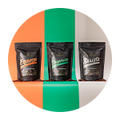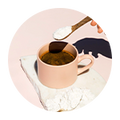What is Ashwagandha?
Ashwagandha (scientific name: Withania somnifera), also commonly known as Indian Ginseng or Winter Cherry is a plant in the nightshade family that has been cultivated and used for thousands of years in Eastern countries including India, Nepal, China and Yemen. The plant has been used in a number of traditional forms of medicine including Ayurveda, Unani, Siddha and homeopathy with multiple intended uses from immunomodulation to stress management. The plant’s roots or leaves are generally boiled in milk or converted to a powder form (Zahiruddin et al., 2020).
What are the active compounds?
To date, over 35 phytochemicals have been isolated in the extract of the Ashwagandha root with the main constituents being alkaloids and steroidal lactones. The main alkaloid is withanine and the major steroidal lactones are withaferin A, withanolides A-Y, withasomniferin-A, withasomidienone, withasomniferols A-C, withanone. (Gupta and Rana, 2007).
What are its potential benefits?
Traditionally, the plant has been used medicinally as an antioxidant, adaptogen, aphrodisiac, liver tonic, anti-inflammatory agent, astringent and more recently to treat ulcers, bacterial infection, venom toxins and senile dementia (Zahiruddin et al., 2020). Outside of its traditional use, recent claims have been made for Ashwagandha as a sports supplement for increased performance. These proposed benefits include increased strength (Menayang, 2019), a boost in testosterone (Saleem, 2019) and improved VO2 max (Pérez-Gómez et al., 2020).
Improves Sleep Quality
In recent years, ashwagandha has become increasingly popular as a natural sleep aid. Some evidence suggests that it may be helpful for improving sleep quality, reducing anxiety, and increasing alertness upon waking.
Additionally, a review of five high-quality studies found that ashwagandha appeared to:
- Have a positive effect on overall sleep quality
- Reduce anxiety levels
- Help people feel more alert when they woke up
If you are considering taking ashwagandha for sleep, talk to your doctor first, especially if you have any underlying health conditions or are taking any medications.
Promotes Rest & Relaxation
Best known for its ability to reduce stress and anxiety, ashwagandha works by reducing levels of the stress hormone cortisol and regulating the activity of the hypothalamic-pituitary-adrenal (HPA) axis, a system in your body that regulates the stress response.
In simpler terms, ashwagandha is a herb that can help you relax and de-stress. It may also help reduce anxiety. More research is needed, but early studies suggest that ashwagandha may be a helpful supplement for people who are feeling stressed or anxious. Talk to your doctor before taking ashwagandha, especially if you have any underlying health conditions or are taking any medications.
Helps aid endurance & strength
When it comes to the use of Ashwagandha as a sports supplement, a recent meta-analysis looking at the effect of Ashwagandha supplementation on VO2 max noted that, while the evidence suggested there might be some improvement, a great deal more research needs to be done in order to solidify the claims of increased performance. This meta-analysis concluded this from a total of 5 studies, which were noted to consist of small groups of participants. Studies also had high variability in design, ranging from 2 to 12 weeks in duration and Ashwagandha doses from 300-1000mg/daily (Pérez-Gómez et al., 2020).
What is the current evidence behind Ashwagandha?
So far in the literature inferences have been made linking a number of the phytochemicals isolated within Ashwagandha extract to some of the various neuroprotective qualities that the root has traditionally been used for (Zahiruddin et al., 2020). These include protection against oxidative stress and pro-inflammatory cytokines (TNFa, IL-1B, IL-6, MCP-1), reduction in neurodegeneration and reduced anxiety. (Zahiruddin et al., 2020).
These findings clearly indicate that the claims for the use of Ashwagandha and its constituents in a medicinal sense have a reasonable and scientific basis. However, it is worth mentioning that the majority of the mentioned benefits have been demonstrated in vitro (in glass, looking at interactions at the individual cell level) and in vivo, in mice studies (Zahiruddin et al., 2020). A pharmacological review of Ashwagandha stated that the current evidence for the product was “overwhelmingly encouraging” but stressed the need for more clinical testing (Dar et al., 2015).
Conclusions
Given the isolation of bioactive substances contained within the root thus far and its success in vitro and animal studies, research into Ashwagandha’s use as a medicinal supplement looks promising going forward. However, it is important to consider that research into the effectiveness of this product in humans is still in its preliminary stages and, as such, more evidence is still in order to solidify claims of its role as a health or sports supplement.
Guest blog post by The Fight Dietitian (@the_fightdietitian)









